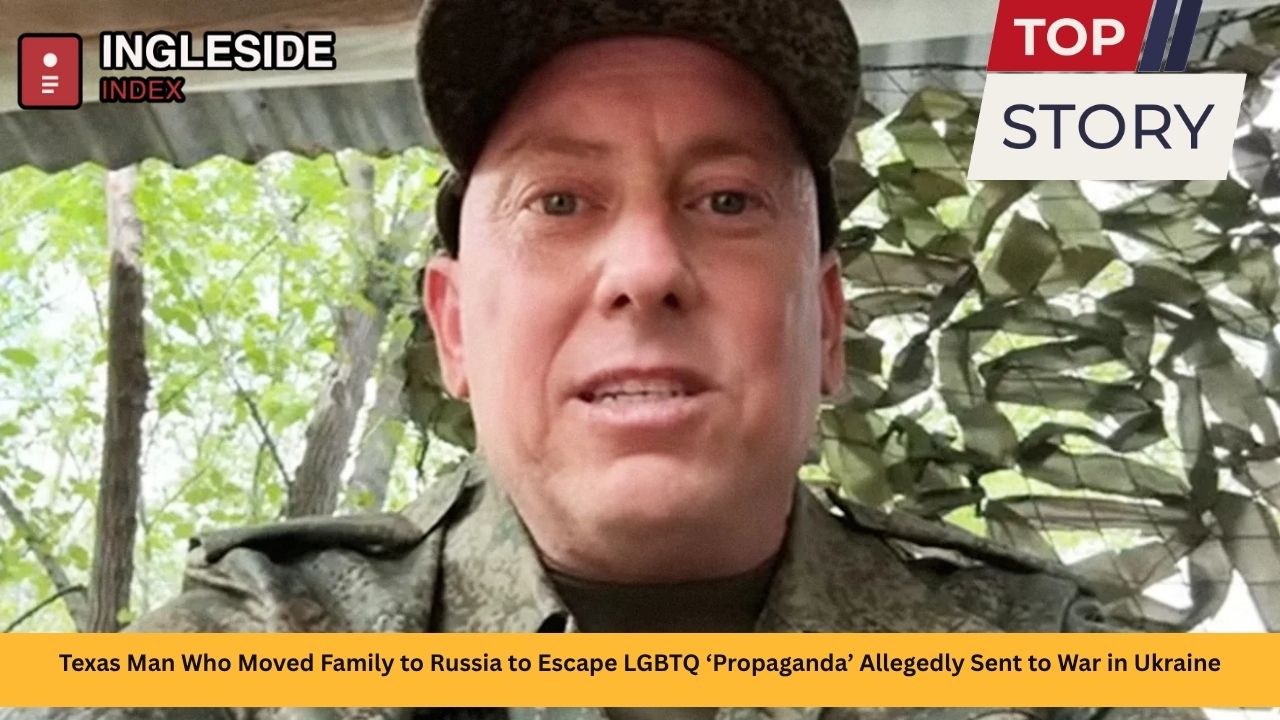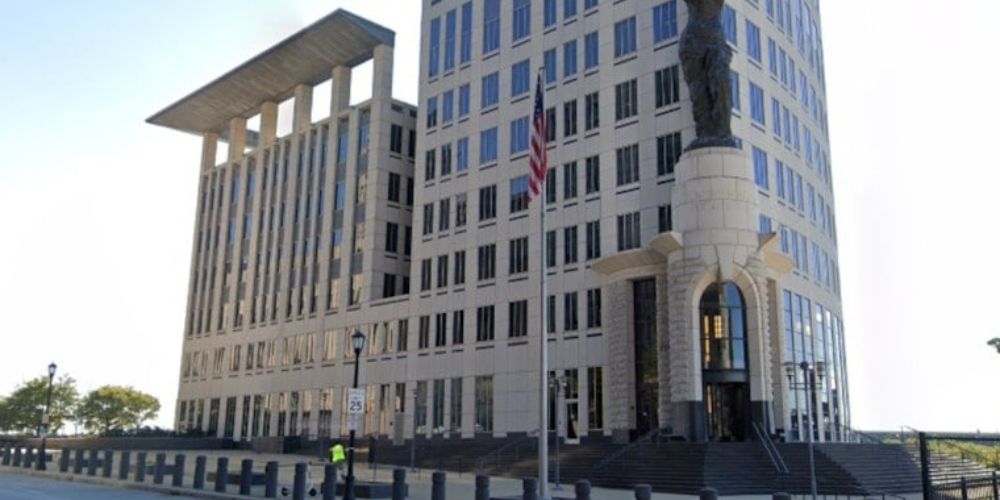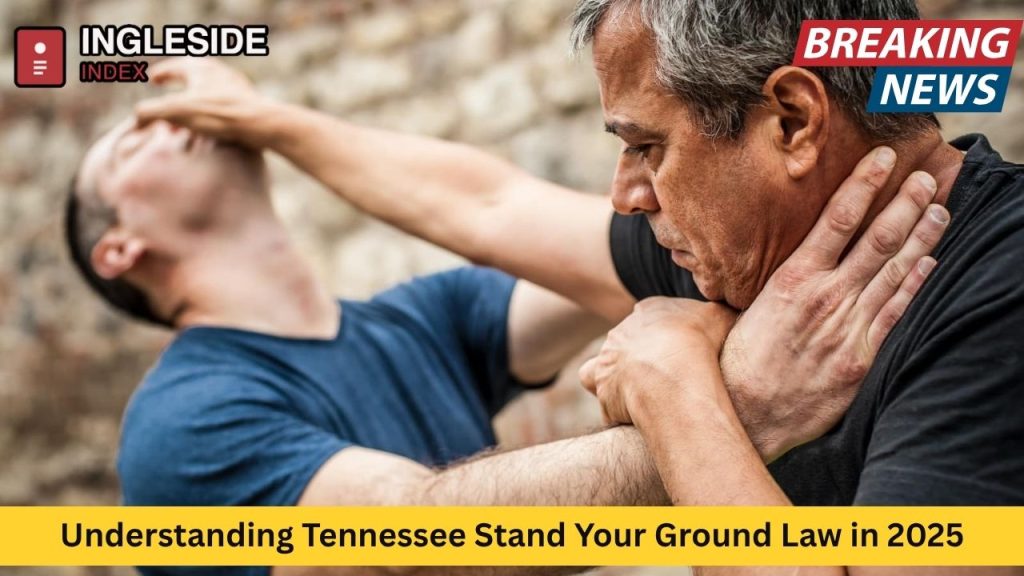Across recent years, the intersection of social values, media narratives, and international conflict has produced strange, sometimes tragic, headlines. One of the most striking stories to emerge in 2025 is that of Derek Huffman, a father from Texas who, driven by personal convictions about American cultural shifts, relocated his family to Russia in search of what he believed would be a more traditional environment. What followed next is both a cautionary tale and a reflection of the global landscape’s volatility: Derek was reportedly sent to the frontline of Russia’s war in Ukraine.
This article explores the background, motivations, and unfolding consequences of the Huffman family’s transcontinental move – and what their saga reveals about the broader social and political currents sweeping both the United States and Russia.
The Backdrop: An America in Cultural Flux
The Huffman Family’s Texas Roots
Texas has long been emblematic of rugged individualism and conservative values. Cities like Dallas, Austin, and Houston are known for their diversity, but even these metropolises have become microcosms of America’s cultural divides. In recent years, issues surrounding LGBTQ rights and education have moved to the center stage — particularly in states like Texas.
Public debates in Austin’s statehouse, school board meetings in Houston suburbs, and court battles in Dallas all reflect the growing polarization over social curricula and LGBTQ visibility in public life. It was against this backdrop that Derek Huffman and his wife made a fateful decision for themselves and their three daughters.
The Tipping Point: School Policies and Parental Fears
For many American parents, the classroom has become a battleground over values. In Texas, some schools introduced policies that incorporate discussions of gender, sexuality, and inclusivity. Huffman’s family became alarmed after learning their eldest daughter was exposed to lessons including LGBTQ topics at her school in suburban Dallas. Feeling that traditional American values were being eroded, the Huffmans sought an alternative.
Why Russia? Seeking “Traditional Values” Abroad
Moscow’s “Shared Values” Visa Program
In recent years, under President Vladimir Putin, Russia has actively courted Western families dissatisfied with what it brands as “destructive neoliberal ideology.” The country launched special “shared values” visas, inviting foreigners who reject progressive social norms to settle in Russia and help bolster its demographic and ideological goals.
Derek Huffman discovered online communities promoting a vision of Russia as a bastion of traditional values, offering not just a new homeland but a community of like-minded expatriates. The Huffmans settled in Istra, a small town roughly 25 miles from Moscow, quickly joining a cluster of other American and Western families who had made similar moves.
Life in Istra: A New Beginning
The transition from North Texas to Istra was dramatic. Istra, with its historic monastery, tree-lined avenues, and proximity to the Russian capital, represents a quiet contrast to the sprawling suburbs of Dallas. Despite language barriers and a very different climate, the family initially embraced their new environment. The Huffmans were optimistic that their daughters could grow up far from the classroom controversies they had left behind.
The Reality of Russia’s “Values”: Laws, Limits, and Life
Russia’s LGBTQ Policies
Though Russia promotes itself as defender of “traditional values,” this comes with strict legal measures. The so-called “gay propaganda” law, first passed in 2013 and then greatly expanded, forbids any promotion or discussion of LGBTQ lifestyles to minors and even further restricts public discourse for all age groups.
Public Pride marches are banned, LGBTQ clubs operate underground or close entirely, and activists routinely face arrest. Moscow, Saint Petersburg, and other Russian cities have seen opposition groups disappear. The Human Rights Campaign and other organizations regularly condemn Russia’s record on these issues.
The Expatriate Community
The expatriate enclave near Istra quickly attracted global media attention. Families relocated from U.S. cities like Phoenix, Dallas, and smaller towns in Ohio and Tennessee. Some found the fresh start they had hoped for, but others discovered new challenges:
-
The language barrier made basic services, such as healthcare, difficult to access.
-
Russian bureaucracy was slow and unresponsive, especially concerning visa renewal and school placement.
-
Local Russians in Istra were often wary or dismissive of Western transplants, seeing them as curiosities or even as potential political pawns.
Despite these difficulties, Derek remained determined, frequently updating family back in Texas about their progress and newfound sense of safety.
A Path to Citizenship with a Hefty Price
Joining the Russian Military
To cement the family’s citizenship, Derek explored the fastest pathways. The Russian government had recently streamlined citizenship for foreign volunteers in the military. Hoping this would fast-track the process for himself, his wife DeAnna, and their daughters, he signed up.
Official recruitment documents described opportunities for non-combat roles — welders, mechanics, translators, and war correspondents. Derek, with no military background and limited Russian, believed he would be assigned to a support position.
Minimal Training, Maximum Risk
Unlike the polished narratives of heroic volunteerism, the training regime Derek encountered was brief and almost entirely in Russian. The language barrier left him unable to fully understand orders, safety instructions, or details about deployment. Conversations with his wife, posted online, showed their growing fears: Derek quickly realized expectations did not match reality.
Sent to the Front: The War in Ukraine
Deployment to Ukraine
In spring 2025, Derek received notice his unit would be sent “near” the front in the ongoing war against Ukraine. Despite previous assurances, he was issued combat fatigues and a weapon, joining a draft of multinational volunteers and inexperienced soldiers.
Reports indicate that the area around Bakhmut, a city that has seen some of the fiercest urban warfare since the Russian invasion began in 2022, was the likely destination. Other foreign volunteers, both pro-Ukraine and pro-Russia, have described chaotic, terrifying conditions with limited supplies, unclear chains of command, and heavy casualties.
Communication with Family
Before deployment, Derek’s family received one last video message on U.S. Father’s Day. He appeared in military uniform, speaking briefly to his wife and daughters, expressing love and determination to return. That was the last direct contact DeAnna and their children received for weeks.
Back in Istra, DeAnna tearfully pleaded for help, posting appeals to social media and reaching out to the U.S. embassy in Moscow. The family’s YouTube channel, once full of optimistic vlogs about adapting to Russian life, was scrubbed of many recent videos.
Misinformation, Disillusionment, and Desperation
Broken Promises
The Huffman family’s ordeal underscores a recurring theme among Westerners who move to Russia seeking ideological refuge. Many have reported:
-
Misrepresentation of opportunities, with support roles quickly replaced by frontline assignments.
-
Delayed or cancelled payments for service rendered.
-
Little recourse once deployed, especially for those with no Russian citizenship or legal guarantees.
DeAnna spoke candidly in now-deleted videos about feeling “thrown to the wolves,” highlighting the drastic disconnect between their expectations and reality. In the absence of official support from either the Russian or U.S. government, she resorted to private Telegram groups and WhatsApp communities for updates.
The Broader Trend: Western Expatriates in Russia
Prominent American and European bloggers have promoted the idea of Russia as a safe haven from progressive values, but real-world statistics suggest that most such ventures end in disappointment:
-
Fewer than 2,000 Western families have emigrated to Russia for ideological reasons since 2020.
-
Nearly 60% of those return home within two years, citing cultural isolation, administrative nightmares, or basic economic hardship.
-
The number of foreign recruits in the Russian military who survive their first six months of service near active conflict zones is significantly lower than among local volunteers, due to inexperience and language difficulties.
Life on the Russian Frontline
Realities of War
The Russian war effort in Ukraine has been marked by instability, shifting frontlines, and repeated reports of poorly trained recruits sent into dangerous environments. American and British intelligence estimate that Russia has lost tens of thousands of soldiers since the beginning of the full-scale invasion.
Foreigners, like Derek, without proper training or an understanding of the complex terrain, are at even graver risk. The city of Bakhmut and its surroundings, where both sides have periodically claimed advances, is notorious for bitter close-quarters combat.
The Fate of Other Western Volunteers
Stories similar to Derek’s can be found among volunteers from countries as diverse as France, Brazil, and Serbia. While some come for ideological reasons, others join for economic incentives or out of disillusionment with their home countries. The Russian state media occasionally glamorizes their service, but rarely acknowledges casualties or disappearances among these ranks.
The Contradiction of “Safety” and State Power
Understanding the Irony
The Huffman saga exposes a fundamental contradiction. Derek’s quest was always about safety: shielding his daughters from cultural shifts in Texas, preserving a sense of religious and social belonging, and seeking refuge in a country that promised order. Yet, this very pursuit led him directly into one of the world’s most dangerous war zones — an outcome that defies the narrative sold to many ideological migrants.
Russian Society and Foreigners
Despite official programs, Russian society remains deeply suspicious of foreigners. The state has a record of using outsiders as propaganda or symbolic “trophies” for domestic consumption, especially during times of war. Many foreign volunteers are encouraged to pledge loyalty, often through visible deeds such as military service, but are rarely afforded the protections or rights of native-born Russians.
The Ongoing Plight of the Huffman Family
Impact on DeAnna and the Children
With Derek’s deployment, DeAnna became the primary caretaker of their three daughters in a foreign land, grappling with uncertainty and fear. The town of Istra offered little support; news of Derek’s situation spread quickly, attracting both sympathy and suspicion from local Russians.
The family faced bureaucratic challenges with their visas, struggled with finances, and became isolated from much of the expatriate community who had either returned home or chosen to avoid controversy.
Seeking Help from the United States
After exhausting most Russian channels, DeAnna ultimately tried to reach out to American officials. However, as they were not legally considered refugees or victims of political persecution, the family found itself caught in limbo. The U.S. embassy in Moscow, already limited by diplomatic tensions, provided only basic advice.
Lessons from an American Tale of Exile
Social, Political, and Human Implications
At heart, the tale of Derek Huffman is a human one — a story of a man swept up by ideals, misled by promises, and ultimately trapped by forces much larger than himself. It raises important questions:
-
What does safety mean, and who provides it — the state or the community?
-
What are the real consequences of polarizing social debates when they lead families to seek “refuge” in unfamiliar and repressive environments?
-
How are individual lives used by states as part of broader ideological and geopolitical campaigns?
The Role of Social Media and Misinformation
In both the United States and Russia, social media played a pivotal role. Derek discovered the Russian visa scheme and expatriate community through online forums and YouTube influencers. Likewise, his story — from hopeful arrival in Istra to desperate wife’s pleas — spread across Instagram, Telegram, and international news, amplifying both facts and misconceptions.
The Reality of “Family Values” Across Borders
A Cautionary Tale
The pursuit of a traditional vision of family life led the Huffmans across continents. Yet, the very laws meant to “protect” children in Russia — strict bans on LGBTQ discourse and a culture of suspicion — have also driven many Russian families abroad. Meanwhile, those who emigrate in search of old-fashioned values too often find themselves disillusioned, unsupported, or, in Derek’s case, endangered by the same systems they hoped would protect them.
LGBTQ individuals and families within Russia continue to face severe discrimination. Activists are forced underground. Some cities, including Moscow and Saint Petersburg, have seen rare public protests crushed or ignored. Even conservative American communities that have sent families to Russia have started to question the wisdom and safety of such moves.
Looking Ahead
As the war in Ukraine rages on, stories like Derek Huffman’s remain a stark reminder of how deeply personal decisions are woven into global politics. Families, whether in Texas, Moscow, or Kyiv, continue to navigate a world marked by both visible and invisible lines — of nationality, ideology, and identity.
Conclusion
The journey of the Huffman family makes clear that ideological battles, when acted upon at the level of individual lives, can yield unexpected and sometimes tragic consequences. The search for “safety” and “values” led a Texas family to Russia and ultimately to the frontline of a brutal war.
As cities like Dallas, Houston, and Moscow debate the meaning of family, freedom, and tradition, the story of Derek Huffman — and countless others like him — reminds us of the enduring human cost beneath the headlines. In a world increasingly divided by lines both real and imagined, perhaps the real task is bridging understanding, rather than building new walls, across our families and societies.











Leave a Comment